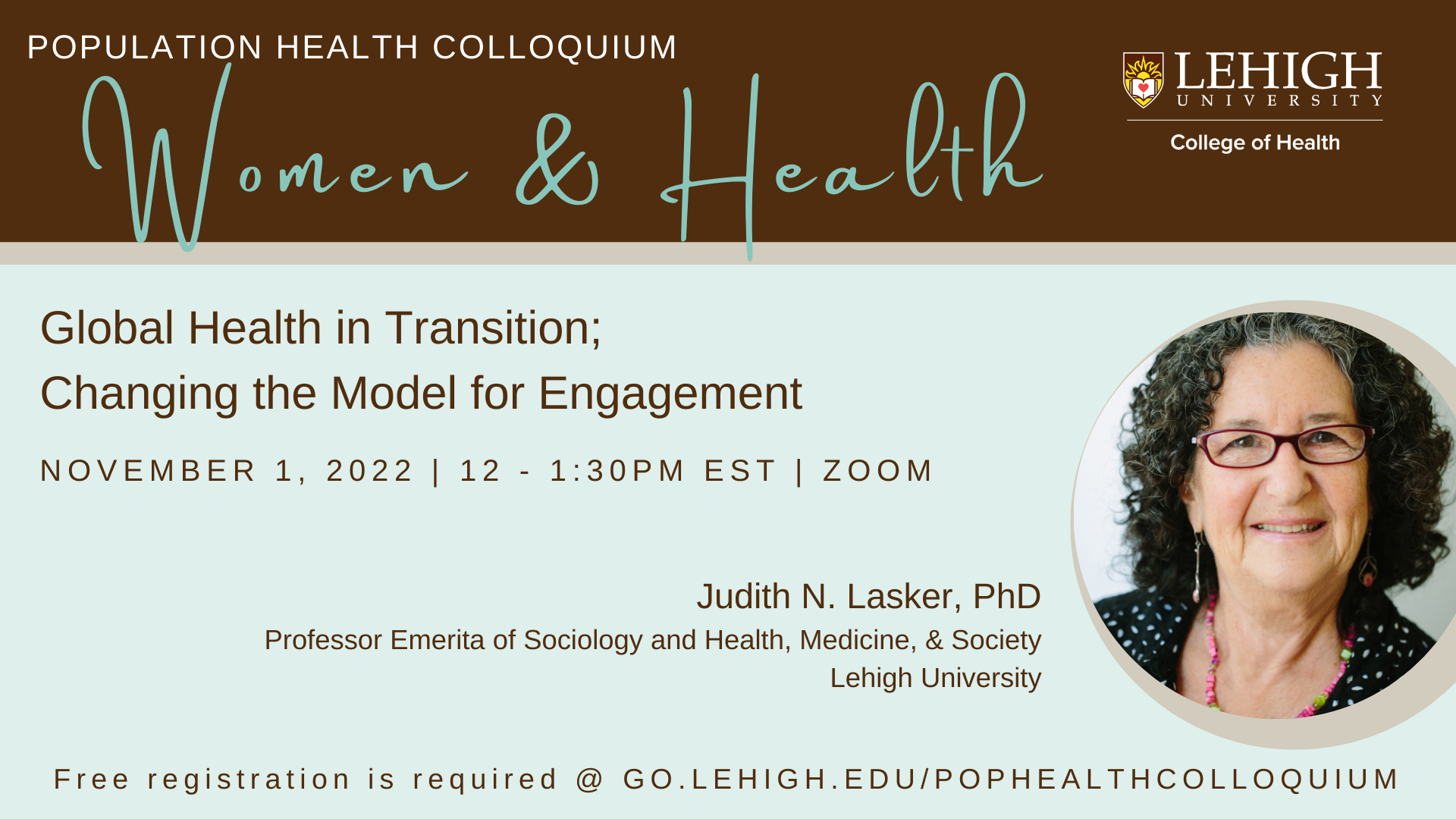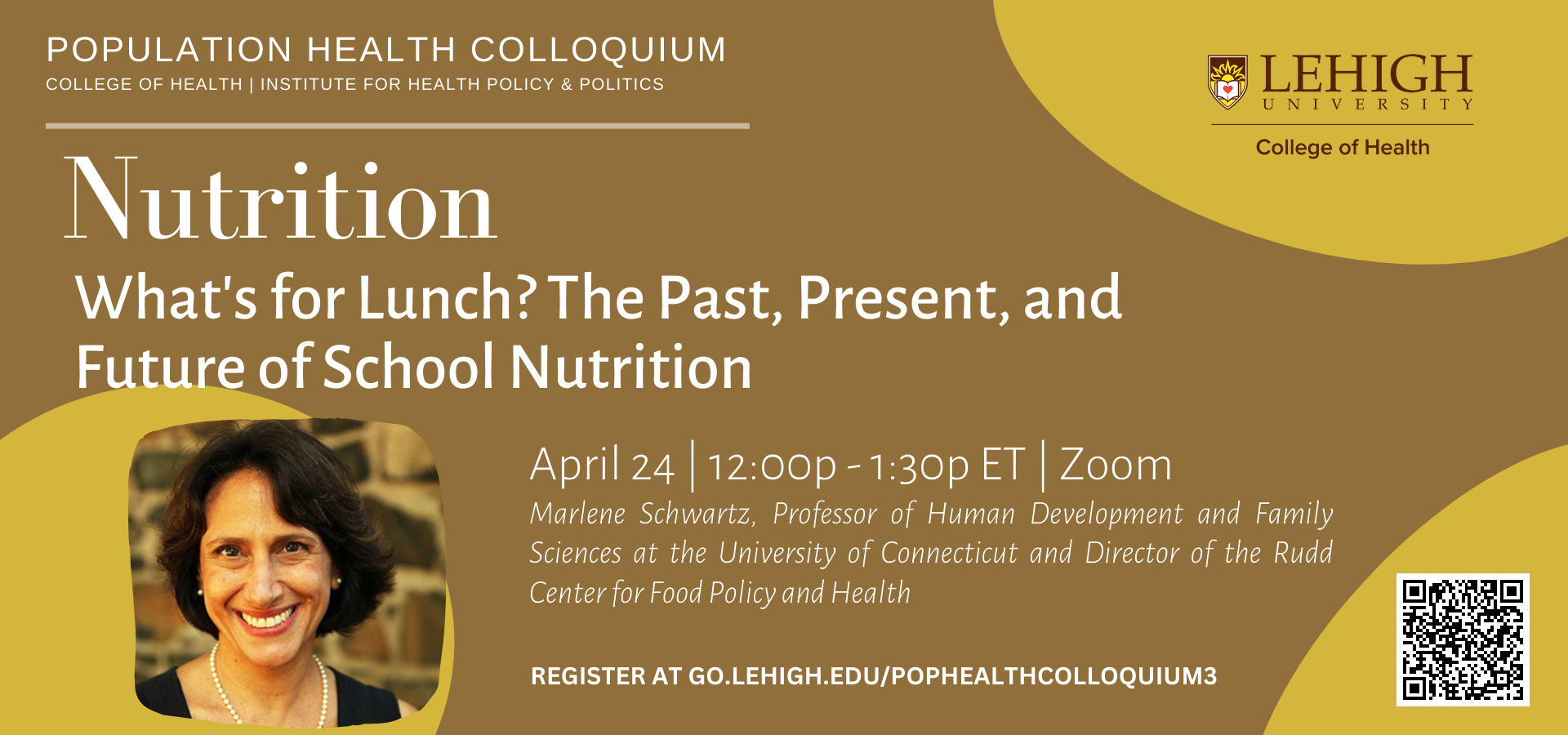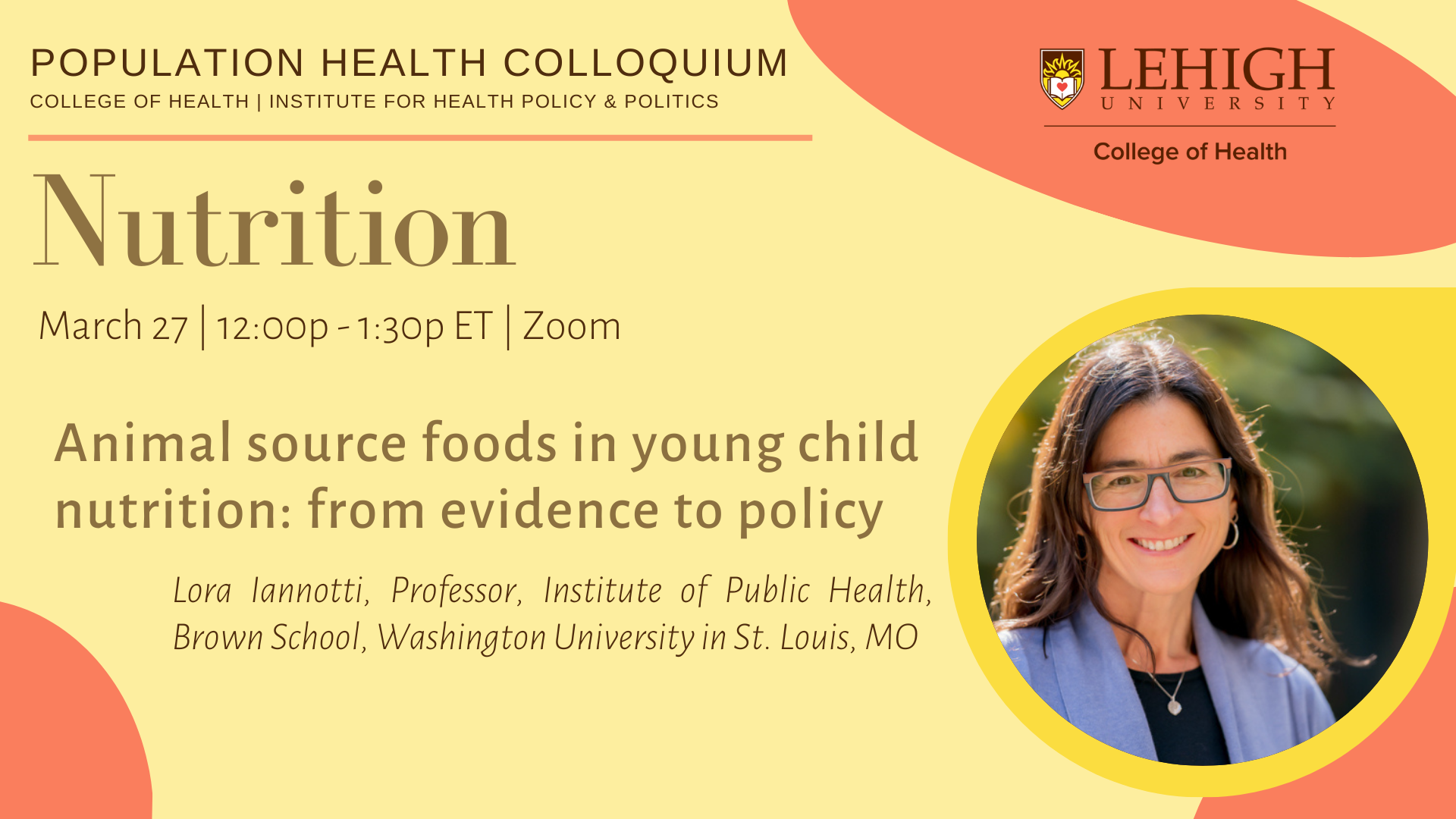
Global Health in Transition and Changing the Model of Engagement
By Esha Soni '24
Video link to full presentation
On Nov. 1, 2022, Lehigh University held a colloquium event titled “Global Health in Transition and Changing the Model of Engagement,” highlighting Judith N. Lasker, professor emerita in sociology and anthropology and health, medicine and society at Lehigh University.
Lasker was introduced by Elizabeth Dolan, interim Dean of the College of Health, and Eduardo Gomez, associate professor and director of the Institute for Health Policy and Politics. Dolan shared how Lasker’s major areas of interest are in the field of medical sociology, with particular emphasis on women’s health issues and international health. Lasker wrote the book, Hoping to Help: The Promises and Pitfalls of Global Health Volunteering (Cornell U. Press, 2016), as well as several journal articles examining the impact on host communities and on volunteers of short-term international service programs in public health and medical care.
Lasker began by thanking Lehigh for the experiences and opportunities she has received, as well as the students who have helped her research to learn more about global health. In her lecture, Lasker emphasized the vast increase in short-term health activities, how many students want to volunteer in developing countries, and the various existing paradigms for global health activities.
As these colloquium series have been focused on women and health, Lasker explains the relation between global health and women. She shares that 60% of U.S. international volunteers aged 15-24 are female, 70% of the health workforce globally are women, and that most patients around the world are women. However, the perspectives and needs of these groups of women are barely noticed in global health literature.
Through Lehigh and the Catholic Health Association, Lasker received 376 survey and interview responses from the U.S. and 124 survey and interview responses from people who work in host organizations in 17 countries. She later went in depth with benefits and drawbacks of the hosts perspective. Some health-specific benefits addressed were provision of needed care in underserved areas, training and capacity building for institutions, and specific improvements in patient well-being. Drawbacks mentioned were volunteer’s lack of cultural awareness and language, lack of respect for local expertise, and lack of host input planning.
Lasker explained the Brocher Declaration, which is six main principles to guide ethical, sustainable, and practical engagements in global health, and how it was incorporated into a foundation in Geneva that advocates host countries should control policy and direction of activities.
Relating the topic back to women, Lasker explains more in depth how certain issues that are familiar relate to women in the health world. Society must look beyond women as just reproductive agents and stop giving men credit for all collaborative work, she says.

